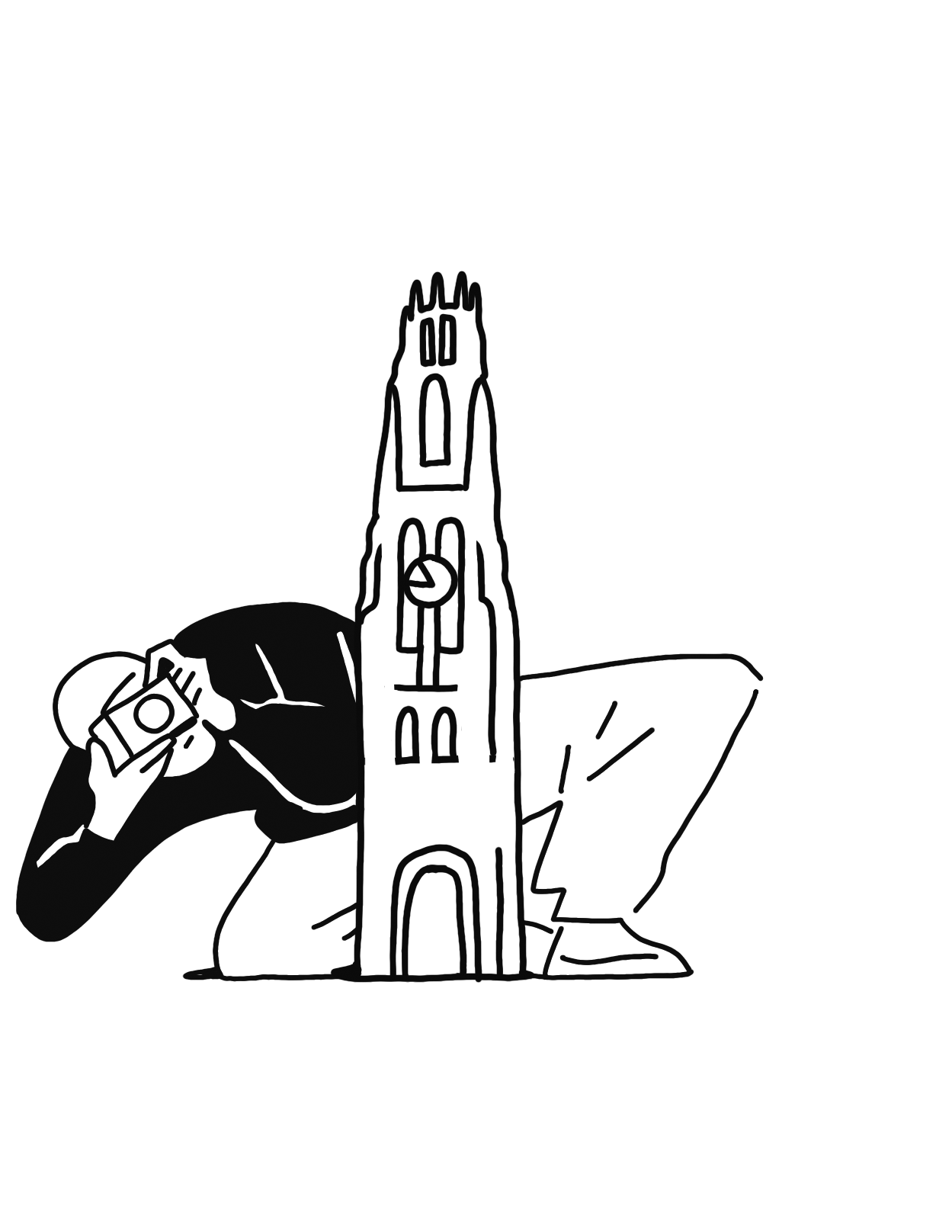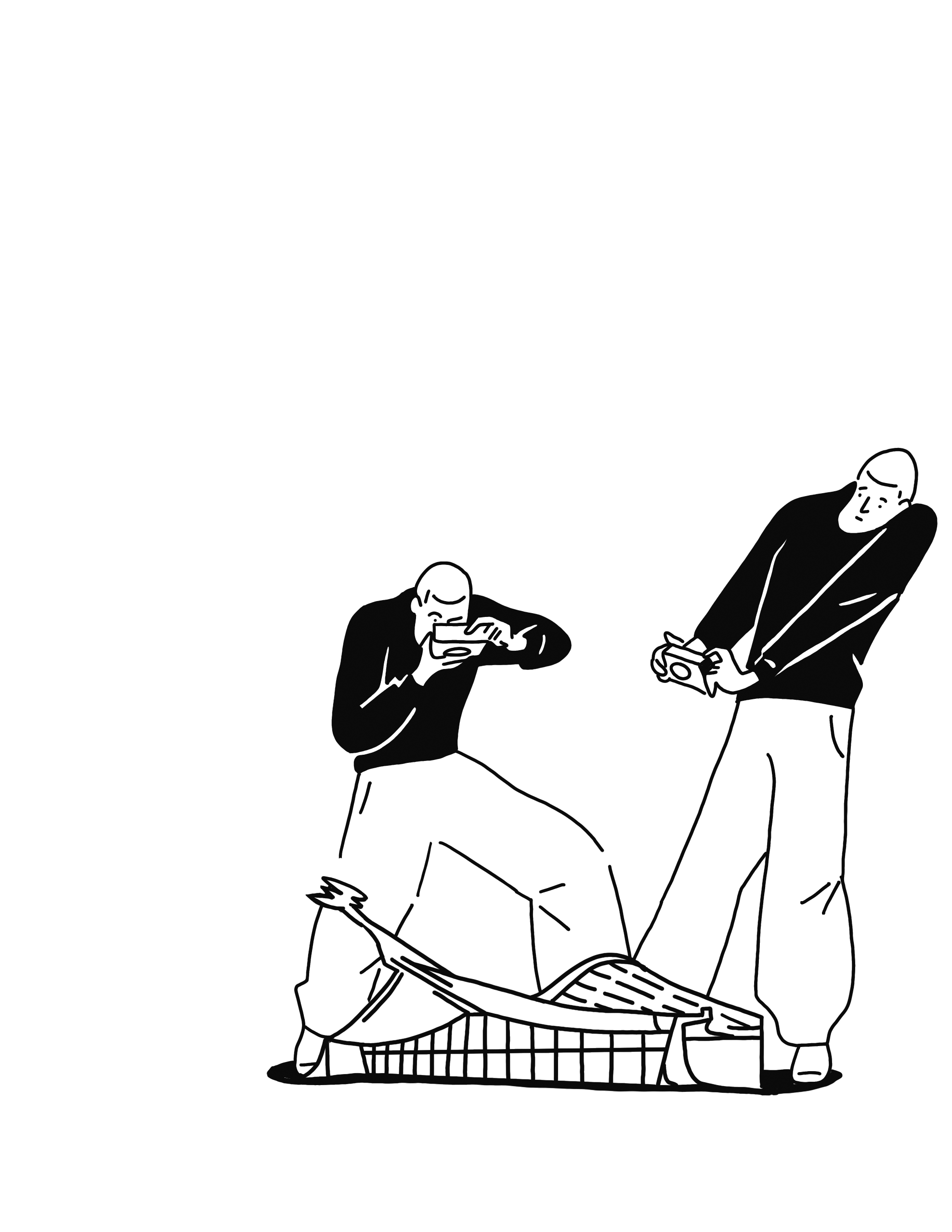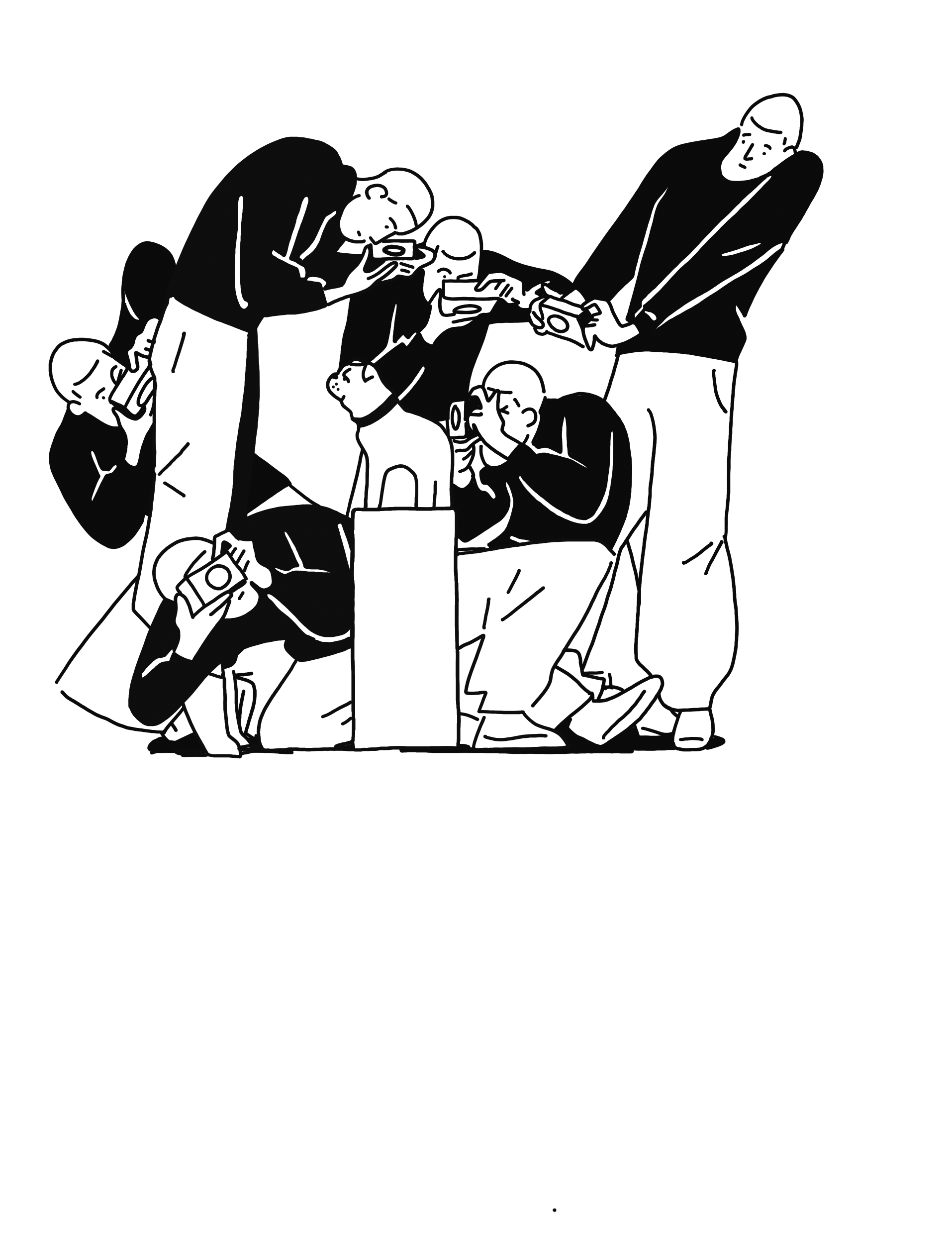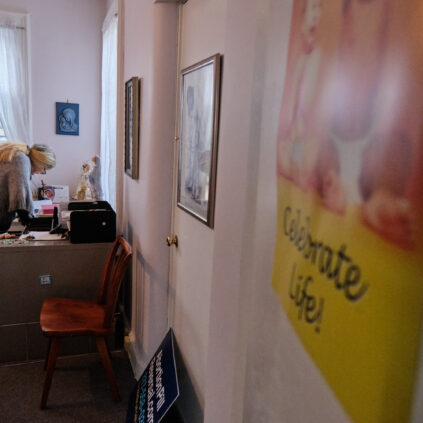
From my home in Mumbai, I devoured all of Aimee Catherine’s vlogs. “LIVING LIKE RORY GILMORE FOR A DAY AT YALE UNIVERSITY.” “Harvard-Yale Game 2021 | “The Game” Vlog.” “college weekend in my life at yale.”
Each left me in awe of the life she leads at Yale, and more excited to come here in the fall.
Now she sits in front of me in the Morse common room. She’s taller than I expected,
a wonderful listener, and refreshingly down-to-earth. The Yale junior also has more than twenty thousand subscribers on YouTube, a significant share of which are high school girls. I look at her with a mix of awe and anticipation, incredulous to be talking to the same person whose weekly videos I once watched religiously.
She’d sketched out Yale with the tools I would need to succeed here. I thought I knew Yale, I thought I knew her—it turns out, I know neither.
“I center my content around my lifestyle, a big part of which is Yale,” she tells me. “It’s a way for me to channel my creativity and document my experiences, and was never meant to be a generalization of what Yale is for everyone.”
I logically know that Aimee and campus influencers are not complicit in the discrepancy between the content they produce and the resulting image they create for their followers. And yet, I can’t help but feel deceived.
Until I arrived at Yale this August, I was one of those many followers, convinced that life at Yale was as perfect as it looked online, with the First-Year Dinner and East Rock hikes and picnics on a beautiful fall day that influencers advertised. It didn’t take long for the rosy camera lens to fog.

I grew up in Mumbai—coming to Yale not only meant a transition from high school to college, but a fundamental cultural adjustment. For the first time, I found myself in several situations where I was the only brown person in the room—some references went over my head, and my accent often felt uncomfortably distinct. Never before had my Indian identity felt so pronounced, as I fielded questions like “How on Earth is your English so good?” and “If you’re from India, how did you get into Yale?”
I am not alone in this isolation. Fellow international students echo similar struggles—the lack of our representation on social media, the differences between the one-size-fits-all Yale experience and the one we have.
“We see glimpses of what it’s like to be at Yale,” my friend and fellow first-year Mansi Anil Kumar ’27 told me, “but never what it’s like to be at Yale as an international student.” Indian students at Yale like Mansi have become my makeshift home and family, people that I cannot imagine my life here without. The hashtags and TikToks never talk about the intense homesickness and loneliness that several of us have experienced given the huge transition we are making.
It can feel difficult to move beyond the constructed image of Yale online to a real one—one beyond the myth.
Some of my happiest moments have been in the last few months. My intellectual curiosity has never felt as nurtured, my friends are some of the most wonderful people I have had the privilege of meeting, and I have truly started to feel at home here. But, this semester has also been rife with moments of self-doubt and imposter syndrome, with the constant doubt of whether I truly deserve to be here.
Curious about the image Yale influencers seek to present, I also talked to Emme Zhou ’23, an influencer known for her Yale dining hall content. Her “come get a meal with me at Yale!” TikToks went viral, accumulating millions of views. I remember obsessively rewatching her videos, and salivating over apple pancake brunches. Talking to her was surreal. She was the same Emme who was my primary source of information about Yale dining halls, the same Emme whose food content has made all my friends at other universities bitterly jealous.
“I wasn’t providing thoughts and opinions on the Yale experience, I was just showcasing what we have,” Zhou told me. Living in Pauli Murray, her “daily breakfast was delicious,” and she aimed to let her viewers draw their own conclusions about life at Yale. Of course, Zhou did not advertise that she was an employee of Yale Hospitality as a student worker—even if she told me that payment did not impact her content.
While talking to her, I realize that this disparity between the “Yale” that influencers portray and the “Yale” we imagine, is an unintended consequence of being an influencer at Yale. But, to be perfectly honest, she did set the bar high with her cannoli pancake-filled montages—a bar that my daily salad and hummus could never dream of living up to.
Both Catherine and Zhou seemed careful not to generalize the Yale experience to everyone. But, their wide reach—particularly when Catherine’s viewer demographics consist mostly of high schoolers—means that there is a fine line between “showcasing” a Yale experience and having that become the standard for future Yalies.
These influencers are situated in a much broader network of Yale’s carefully curated online presence. Their work begs the question: Who should be held accountable for crafting the idealized myth of Yale?
Perhaps more pervasive—if subtle—is the Yale Admissions Office, and other Yale administrative office presences online. I remember coming across an admissions blog titled “What are Yale Youtubers,” which publicized a Harvard-Yale game day vlog, Catherine’s “FIRST DAY OF COLLEGE AT YALE UNIVERSITY | Freshman Year!” video, among several other influencers’ YouTube channels. However, not only does the administration promote these pages, they also take on influencer roles themselves.
“Day in the Life” reels are no longer restricted to influencers’ Instagrams; they are all over Yale’s admissions account. The image of Yale that influencers portray becomes far more official in creating a specific perception of Yale when it is endorsed by Yale channels. Yale’s social media presence is filled with these student-led videos, with administrators encouraging students to toe the line between student and influencer. It seems a new frontier of advertising has opened up—one that relies on faux candid sixty second videos and maximizing online buzz.

Before coming here, Yale occupied an unattainable standard in my mind. Everyone was living a life that looked straight out of a movie, one that I just couldn’t seem to capture. Now I’ve come to love Yale much more. Instead of longing for only the picture perfect, I revel in the tangible, quiet moments of reflection. I revel in the mundane.
-Alina Vaidya Madadevan is a first-year in Morse College.
Illustrations by Chris de Santis.


